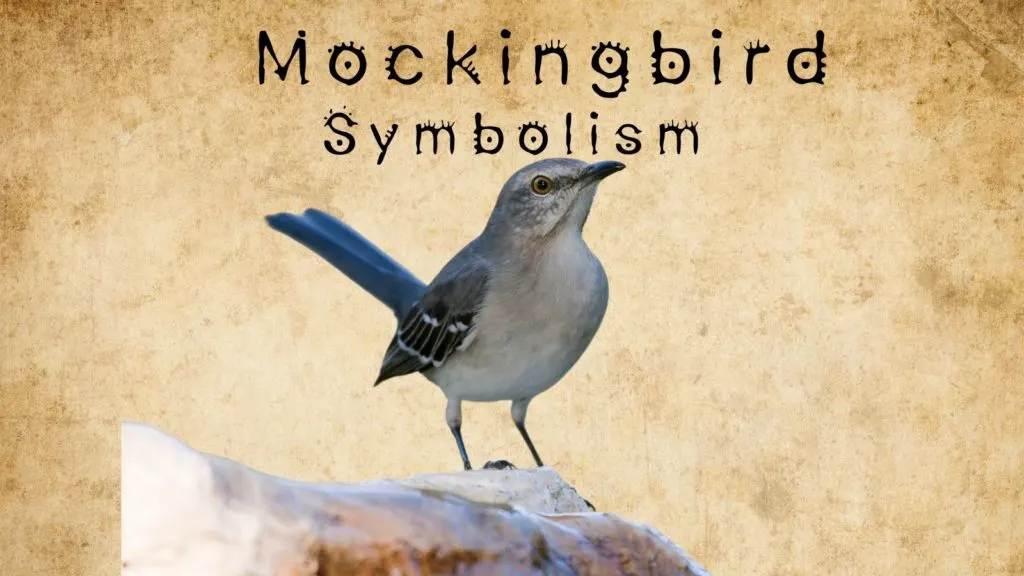Few birds capture the imagination quite like the mockingbird. With its remarkable ability to mimic the songs of other birds and even sounds from the environment, the mockingbird holds a special place in cultures around the world. Let’s unravel the mockingbird symbolism and meanings woven into this remarkable bird.

Versatility and Adaptability
The mockingbird’s unparalleled talent for mimicry symbolizes versatility and adaptability. Just as the mockingbird effortlessly imitates the songs of other birds, it teaches us the importance of being flexible and open to change in our own lives.
In a world that constantly evolves, the mockingbird reminds us to embrace diversity and welcome new experiences with curiosity and grace.
Communication and Expression
Through its diverse repertoire of songs and calls, the mockingbird communicates with other birds and establishes its territory. This aspect of the mockingbird’s behavior symbolizes the power of communication and expression.
Like the mockingbird, we are encouraged to find our voice and express ourselves authentically, whether through spoken words, music, or art.
Creativity and Imagination
The mockingbird’s ability to weave together a symphony of sounds reflects its innate creativity and imagination.
By blending melodies from different sources, the mockingbird creates something entirely new and unique. In doing so, it encourages us to embrace our own creativity and explore the boundless possibilities of the imagination.
Protection and Defense
Mockingbirds are fiercely territorial and will defend their nesting sites vigorously against intruders, including much larger birds of prey. This behavior symbolizes protection and defense, as the mockingbird stands up for what it believes is rightfully its own.
In our own lives, the mockingbird teaches us to protect our boundaries and assert ourselves when necessary.
Resilience and Perseverance
Despite facing various challenges, including habitat loss and competition from other species, the mockingbird continues to thrive in diverse environments. Its resilience and perseverance serve as a powerful reminder of the importance of resilience in the face of adversity.
Like the mockingbird, we are encouraged to persevere in the pursuit of our goals and overcome obstacles with determination and resilience.
Harmony and Balance
As the mockingbird blends together different melodies into a harmonious song, it symbolizes the concept of harmony and balance.
In a world filled with diversity and complexity, the mockingbird reminds us of the importance of finding balance in our lives and fostering harmony in our relationships with others and the natural world.
Mockingbird Meaning in Different Cultures
The mockingbird holds significant symbolism in various cultures around the world, each imbued with unique meanings and interpretations. Let’s explore the symbolism of the mockingbird in different cultural contexts:
Native American Culture
In Native American cultures, the mockingbird is often revered for its mimicry and singing abilities. It is seen as a symbol of communication, eloquence, and storytelling. Mockingbird feathers may be used in ceremonial regalia, symbolizing the power of expression and the ability to bridge the gap between different worlds.
Southern United States
In the southern United States, particularly in states like Alabama, Arkansas, Mississippi, and Texas, the mockingbird is celebrated as the state bird. It represents hospitality, resilience, and pride in local heritage. The mockingbird’s rich and varied song is often associated with the vibrant culture and diverse landscapes of the region.
Caribbean Culture
In Caribbean folklore and spirituality, the mockingbird is often associated with transformation and renewal. Its ability to mimic the sounds of other birds and animals symbolizes the blending of different influences and the power of adaptation. Mockingbird imagery may appear in traditional songs, stories, and artwork as a symbol of creativity and resilience.
Chinese Culture
In Chinese culture, the mockingbird is associated with happiness, prosperity, and good fortune. Its melodious song is believed to bring joy and positive energy to the environment. Mockingbird motifs may appear in Chinese art and literature as symbols of harmony and abundance.
Australian Aboriginal Culture
In Australian Aboriginal mythology, the mockingbird is sometimes seen as a trickster figure, known for its cunning and intelligence. It may be featured in Dreamtime stories as a symbol of transformation, adaptability, and survival in challenging environments. Mockingbird symbolism may vary among different Aboriginal cultures and communities.
Mexican Culture
In Mexican folklore, the mockingbird is often associated with love and romance. Its enchanting song is believed to inspire passion and courtship among lovers. Mockingbird imagery may appear in traditional Mexican art, music, and poetry as symbols of beauty and desire.
From versatility and adaptability to creativity and resilience, the mockingbird imparts valuable lessons that inspire us to embrace life’s challenges and celebrate its joys. So, the next time you hear the melodious song of a mockingbird, take a moment to reflect on the profound symbolism woven into its timeless melody.
More Posts You Might Like
- Does Bird Seed Expire? - May 11, 2024
- How Big Are Baby Hummingbirds? - May 5, 2024
- How to Prevent Mold in Hummingbird Feeder - May 2, 2024
